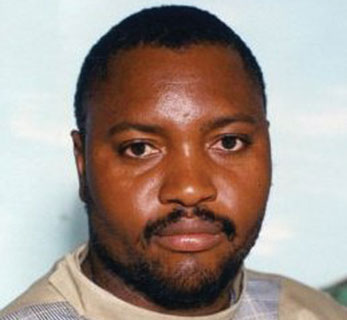
IN the near future annals of history will be awash with the story of a man who preached on Zimbabwe’s sovereignty for most of his days on earth.
The over-sold once-upon-a-time cliché will be used to remind the population how some of us had to endure constant and vociferous reminders on Zimbabwe’s sovereignty. It shall be recorded that the reminders were so incessant as if directed to forgetful retards.
A typical chapter on this emotive topic would begin: Once upon a time, way back in the early 2000, Zimbabwe was ruled by a heavy handed dictator who took every opportunity to remind all and sundry that Zimbabwe was a sovereign State.
The annals will prove that the man who preached loudest on sovereignty was indeed a quisling who looked too far to the East and forgot about his own people. History will not be kind to this pretentious sovereign leader.
It will expose his failure to live within the rules and spirit of sovereignty. The intricate and consummate people of the near future will be intelligent enough to know that a sovereign State continuously exhibits an ability to guarantee the best interests of its own citizens and that a State that fails to act in the best interests of its own citizens foregoes the sovereignty claim.
Armed with some working knowledge on sovereignty, the population of the future will pour scorn at us for being hoodwinked by an old and frail man into believing that we were surviving as a sovereign State. The bemused people will ask a lot of questions that will create a discrepancy in the claims that Zimbabwe had indeed achieved any semblance of real sovereignty during the time in history.
It shall be proven that Zimbabwe was but a paper sovereignty. People will obviously analyse the “sovereign” leader’s trips to the Far East for medical attention for uncomplicated medical problems such as trachoma and cataract. They will question why a nation that screamed loudest on sovereignty could not provide adequate eye care for her first citizen.
The people will wonder if the health needs of ordinary people could be met when the sovereign leader had to traverse halfway across the globe risking air piracy for simple cataract operations. Evidence of failure by the State to meet the health needs of her people will dismiss the claims of sovereignty as spurious manifests of desperation.
- Chamisa under fire over US$120K donation
- Mavhunga puts DeMbare into Chibuku quarterfinals
- Pension funds bet on Cabora Bassa oilfields
- Councils defy govt fire tender directive
Keep Reading
Enterprising citizens of the future will be appalled by the country’s failure in the monetary domain. People will be so incensed to learn that Zimbabwe sang about sovereignty yet she willingly mortgaged herself to the financial influences of foreign States, including some that were openly hostile to her real or imagined sovereignty.
Future generations will marvel at the folly of those who harped on sovereignty yet they willingly surrendered instruments of sovereignty to foreigners. How could a sovereign State have no control over her currency? This would pass as adulterated sovereignty.
The reports of multitudes of Zimbabweans flocking to other lands in search of opportunities will fuel the ridiculing of Mugabe’s claims to sovereignty. How could millions of people disappear to the Diaspora if Zimbabwe lived to the dictates of sovereignty?
What sovereign nation allows a huge percentage of her population to become willing slaves in other lands? The death of Zimbabweans who were allegedly illegally operating a mine shaft in South Africa will be read as damning evidence against the spirit of sovereignty.
Mugabe’s type of sovereignty will be laughed at for generations to come. History will reveal how leaders gave away chunks of sovereignty to other powers. The people will look at the statistics and bow their heads in shame before asking some questions.
Was it prudent for the proponents and exponents of sovereignty to deny citizens the right to education? Of course, Mugabe will turn in his grave in a futile attempt to convince the future that he built a number of schools.
The people will argue that Zimbabwe carried out a form of educational genocide by laying conditions that were not conducive to proper education. If indeed the education system was worthy of a sovereign state, why did the authors of the so-called sovereignty send their children to schools and colleges in countries far and fair?
Was this not an indictment of the education system and a dent in sovereignty?
A State that fails to provide proper facilities of learning loses her claims to sovereignty. Failure by the State to pay fees for students who are lucky enough to be sent to foreign lands for education defeats aspirations to sovereignty.
Our current credulity and understanding of sovereignty will be questioned by future generations. Generations to come will make fun of our lack of basic insight to the workings of independence, sovereignty and self-governance.
Mugabe will be lampooned as a theoretical champion of sovereignty who practiced as a vassal of foreign powers. Zimbabweans of today will be portrayed as gutless people who signed up to hunger, ignorance, ill-health, insecurity, poverty, perfidy, pilfering and perpetual pain in the name of sovereignty.
Masola waDabudabu is a social commentator










